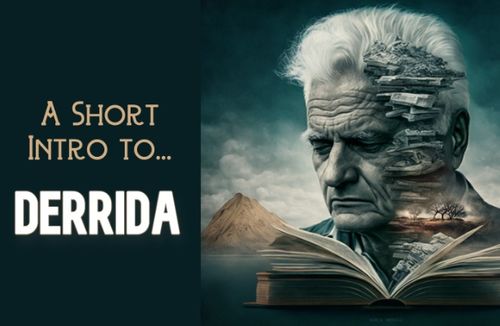Jacques Derrida’s philosophy in a nutshell
Jan 31, 2023 · 2 mins read
0
Share

Few philosophers have split opinions like Jacques Derrida (1930-2004). As one of the greatest 20th-century thinkers, his incisive studies of philosophy and literature challenged many of its basic assumptions.
…Yet others saw him as a conman who embarrassed French philosophy.
Save
Share
Derrida’s approach was to pick apart the things we take most for granted, such as identity and language, and explore them for gaps or contradictions.
He advocated reading everything carefully: not only written texts but art, religion, politics, and ourselves.
Save
Share
Derrida introduced his theory of deconstruction in 1967. The basic idea is that anything constructed can be deconstructed, be it furniture, buildings, truth, or God.
Derrida argued that all of these things are culturally manufactured – including our fixed ideas of them.
Save
Share
Derrida called this "the metaphysics of being" – a misguided belief that consistency or coherence is the measure of truth.
He argued that we kid ourselves into assuming that things have one set meaning – just like we automatically suspend disbelief when sitting down to a movie.
Save
Share
When you look up a word in the dictionary, for example, it simply refers you to other words, which refer you to even more words, and so on. You cannot find a centralised, objective meaning.
Everything is referential, which by nature causes meaning to shift.
Save
Share
Here’s how to deconstruct like Derrida:
- Pick a ‘text’ – it could be a TV show, a receipt, an overheard conversation.
- Set aside preconceptions and question the consensus with fresh eyes.
- Ask yourself how that consensus came to be and whose interests it serves.
Save
Share
Derrida argued that these strategies of reading and interpretation could bring more justice to the world.
Why? Because power structures tend to benefit from having one way of interpreting the world, i.e. through laws or religious texts.
Save
Share
Derrida sought to blur the line between binary oppositions and thereby to challenge the hierarchy inherent in such structures.
Deconstruction resists a totalitarian approach to meaning because there can be no absolutely true assessment of a text.
Instead, it’s iterative.
Save
Share
And yes, reducing Derrida’s own work on deconstruction to a short text such as this cannot possibly encapsulate its complexity of meaning. Treat it instead as a jumping off point if you find these ideas intriguing…
Save
Share
Bottom line: For Derrida, meaning is iterative. Every ‘text’ contains an array of possible interpretations, all of which are valid.
While his detractors argued that this turns philosophy into a free-for-all, it’s an outlook very much at home in today’s ‘post-truth’ society.
Save
Share
0